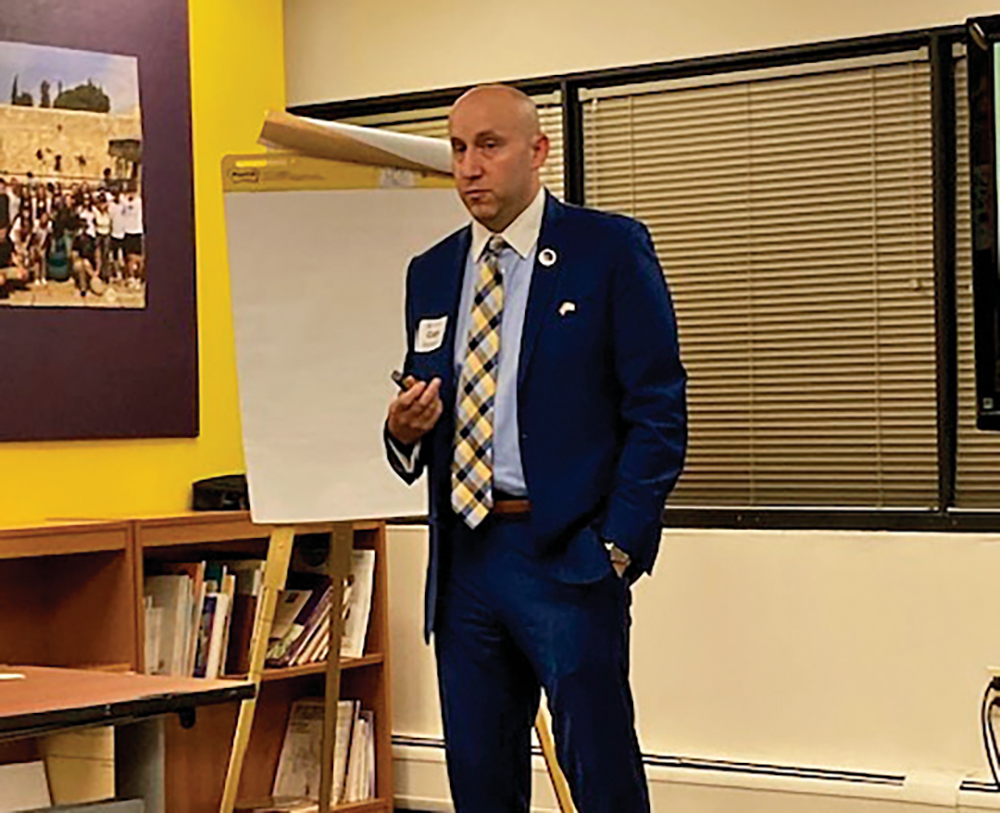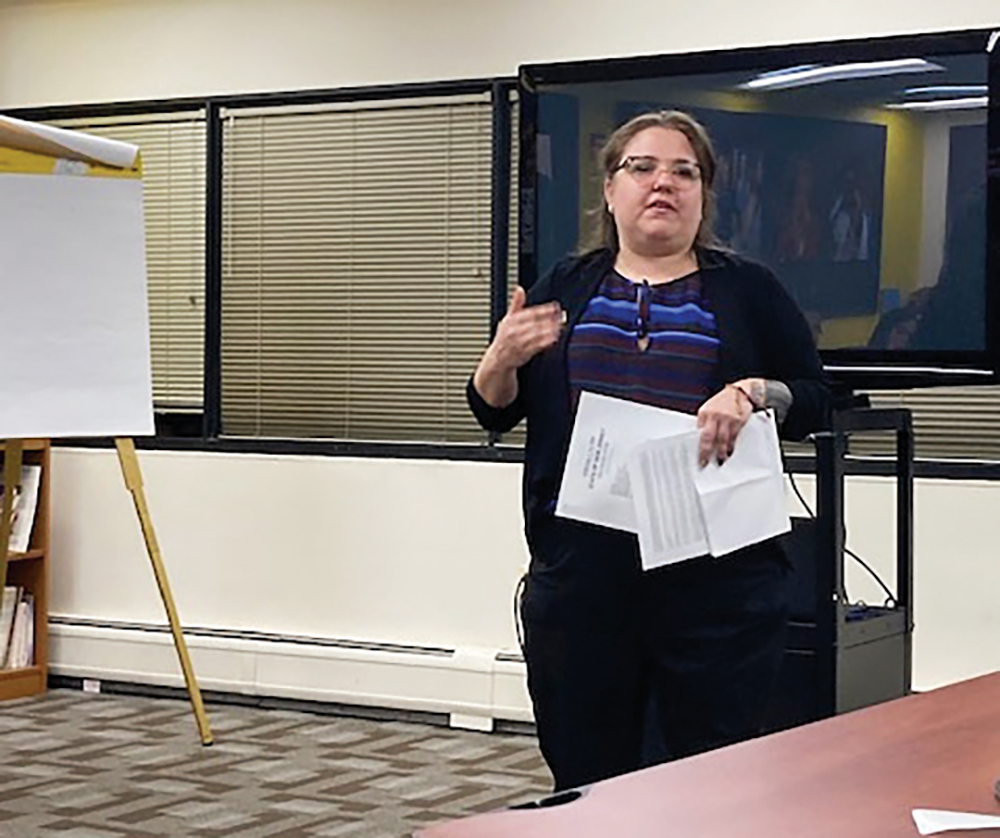
On Tuesday evening, Sept. 25, Jewish Federation of Northern New Jersey’s Attorney’s Division hosted a special presentation focusing on current litigation and general issues related to the protection of Jewish college students. The intimate gathering listened as Cory Rothbort, an attorney at Mazie Slater Katz & Freeman, began the conversation. Although he discussed lawsuits involving Yoel Ackerman, a Rutgers first-year law student, and Rivka Schafer, a student in the university’s School of Environmental and Biological Sciences, much of the talk delved into specifics on what constitutes discrimination and violation of Title VI on college campuses. It also outlined why it is so crucial that the International Holocaust Remembrance Alliance (IHRA) definition of antisemitism be adopted by New Jersey.
Along with Rothbort, Alana Berman, Federation’s Jewish Community Relations Committee Director, public policy expert and community advocate addressed the group. Her responsibilities are focused on working with students before conditions rise to the level where legal action is needed. She explained that her role is to advocate with elected officials and education administrators on issues important to the Jewish community. One of the functions of her team is to help students write letters when discriminatory situations arise. She spoke of the challenges faced when school administrators are confronted about questionable behavior towards Jewish students, explaining that they often play “a shell game,” admitting that antisemitism exists in many forms, but that it did not include the specific complaint brought up, whatever it might be. Their default position is to say that whatever was mentioned falls under the purview of free speech. If the state were to adopt the official IHRA definition of antisemitism, much of the ambiguity would disappear.

Although a New Jersey Senate committee voted 4-1 in June to adopt the IHRA definition for the state, the bill, S1292, still must be approved by the full senate, the state assembly and signed by the governor to become law. As Berman noted, over 30 states and 24 countries have already approved of the definition. Both speakers emphasized that if state officials were to hear from people in the room who have knowledge of the law, it would go a long way towards having the bill passed. Rothbort added, “Passage of the bill wouldn’t criminalize conduct, but if someone were to commit a bias crime, it can then be viewed through the IHRA lens.”
Rothbort explained how he became involved in the specific Rutgers cases. As a trial attorney, his areas of focus include medical malpractice, personal injury and civil rights. October 7 had a profound impact on him personally, and after witnessing how Jewish students were treated on college campuses, he considered those actions “school bullying on steroids—with underlying antisemitism.” He is on the advocacy committee at JBAR, the Jewish Bar Association formed earlier this year, and was disturbed by what was happening at his alma mater, Rutgers. He said that those involved in the campus unrest are not just targeting Jews but targeting police, America and democracy in general. He added: “Police are handcuffed in many ways [from doing their job] and are frustrated. They are being berated as well.”
Briefly, one of the cases is about the experience of law student student Yoel Ackerman. The Rutgers Student Bar Association (SBA) met several days after the terrorist attack to vote on whether they should issue a statement. They decided to not take any action at that time. After the meeting, a student who attended the meeting sent a TikTok video to the SBA group called “3 lies being told about Palestine.” Ackerman responded by calling the action inflammatory. The student who shared the video asked, “Why are you so triggered by this?” which Rothbort noted is a form of passive-aggressive bullying, particularly when directed at an Orthodox Jewish student just five days after October 7. Ackerman had previously been told by the Jewish Law Students Association at Rutgers to make records and take screenshots of any content he believed crossed the line into being antisemitic, which he did. He took screenshots and sent them to the association. He was then accused of doxxing and said he should be expelled. The Rutgers Administration got involved, with one of its members saying, “We have this Jewish student who has been sending screenshots…” Rothbort pointed out that identifying Ackerman by his religion (Jewish) rather than by his name, which was known to the administrator, was profiling. Charges were brought against Ackerman, the student who initially sent the TikTok video and another student who endorsed the video. The outcome was that Ackerman was found responsible for bullying, while charges against the other two students were dropped. Ackerman wrote a blog about the experience, which went viral and was picked up by the New York Post, which ultimately led to the lawsuit filed by Rothbort’s firm.
Details about Rivka Schafer’s experience were reported in a May 16 Jewish Link piece (“Rutgers University Student Files Suit Against Rutgers Charging ‘Hostile Environment’”).
Rothbort explained that part of the suit against Rutgers related to the hostile culture that it allowed. The encampments, for instance, were not something permitted in its bylaws even prior to the October 7 attack, yet Rutgers only addressed the issue when the pressure grew. His final advice was for Jewish students to always report any incidents they believe were biased, and not to be dissuaded by the perceived inaction of the administration. By officially reporting something, a record has been created that can be used at a later date. “You are doing your part by just reporting it.”
Jewish Federation of Northern New Jersey plans to hold an event on October 30 for parents of high school and college students to address the legal, social and academic issues that have arisen due to college antisemitism.
Robert Isler is a freelance writer who focuses on Jewish issues. He can be reached at robertisler23@gmail.com









